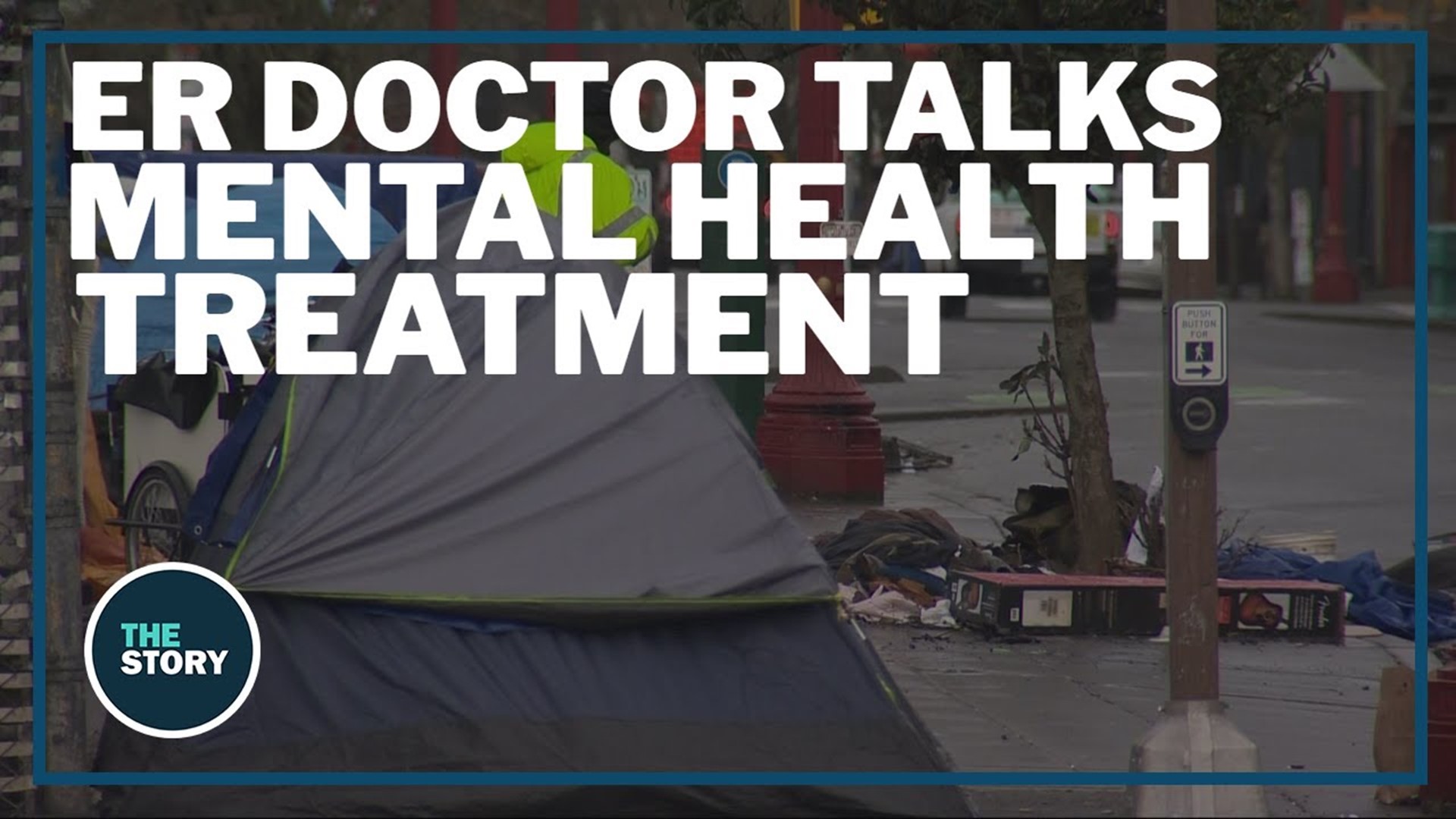PORTLAND, Ore. — One of the big problems many people have with the homeless community in the greater Portland area is fear that someone who looks calm may suddenly become violent due to a mental health crisis.
While many who are homelessness are not violent or dangerous, there are cases in which people do become violent because of various mental health issues. Some KGW viewers said it's the unpredictability that can become worrisome.
Dr. Sharon Meieran, an emergency room doctor and Multnomah County commissioner, said in order to address the mental health crisis, there need to be systemic changes — and they start with early treatment.
"We need changes in the whole continuum of care, because the problem is we don't have the right services available for people at the right time," Meieran said. "And so they end up in crisis because they don't get the services they need beforehand, before going to the emergency department. They end up in crisis and then there's nowhere for them to go, including places to go either other than the state hospital or from the state hospital. So that is a problem, a big problem."
Continuum of care refers to treatment from the first time a person exhibits mental health problems and the steps that follow.
Dr. Meieran is essentially saying the health care system is bad at getting people help early, before they go into crisis and potentially become a danger to themselves.
The executive director of the National Alliance on Mental Illness (NAMI) Oregon, Chris Bouneff, agrees that treatment should be starting earlier, but that the system makes it difficult for people to find help.
"When you go to your primary care physician and you articulate a problem for yourself or your child, primary care should be able to meet your needs, make the referrals, have integrated care, bring to bear medications if those are advisable but also bring all the other treatment services that are necessary," said Bouneff.
Those referrals would include connecting patients with skilled clinicians such a psychologist, social worker or others licensed to deliver behavioral health care in the medical field.
"We don't have seamless transition from, 'I'm in front of you with a need and you help me find what I need in the behavioral health system.' That doesn't really systematically occur," he said.
He said even for people in the middle of a mental health crisis, the emergency room is not the right place to be — yet that is where people in crisis are often sent.
So what can be done to fix the problem? Dr. Meieran has an idea, but it won't be a quick fix.
"It involves numerous systems coordinating with each other and agreeing on an approach. And it involves physicians and other health care providers being educated in medical school and what some of those treatments are. It involves having more providers specializing in mental health [...] so they can make those identifications. And frankly, private insurance in some ways is worse than public insurance and the Oregon health plan in terms of availability of mental health options," said Meieran.
She said she recognizes the enormity of tackling this problem and the amount of change it would take.
"The fact that something is challenging doesn't mean that it can't happen, and it needs to happen," she added.
She mentioned that Sen. Ron Wyden is working at the federal level to make health systems and private insurance companies more accountable to ensure that mental health is treated like other forms of medical care.
RELATED: In 10 years, Houston got 25,000 people off the streets and into housing. Could Portland do the same?
Meieran said people in crisis often end up in the ER because other treatment options are so limited.
"And so if people come in in crisis and pose a danger to themselves or others, then we are obligated to place them under a hold and require that they stay until evaluation by a professional who specializes in this," she said.
She said a lot of people who end up in the ER in crisis do meet that criteria, and they often end up being held in a room for an extended period of time, waiting until they can be admitted to an inpatient hospital.
Another problem is that when people do get into treatment and get onto medication that stabilizes them, there is often not enough aftercare to keep them going.
"It is a revolving door and we are not doing enough," Meieran said. "There is some good work being done, but we are not doing enough to meet that need."
So what needs to change to make it easier for people who are chronically homeless, suffer from mental illness and have violent tendencies to get off the streets?
"Number one, working on criteria to be able to treat people if they're incapable of making medical decisions and they pose a risk to themselves or others, or even if they don't but they are so disabled that they are unable to care for themselves. And we see a lot of people who are like that living outside," said Meieran. "So we need to change our statutes to meet the needs. And that's gonna be controversial because there are a lot of conflicting interests. We need to come together, have the conversations and come with up with a plan that keeps people, both the individuals themselves and the community at large, safe."

